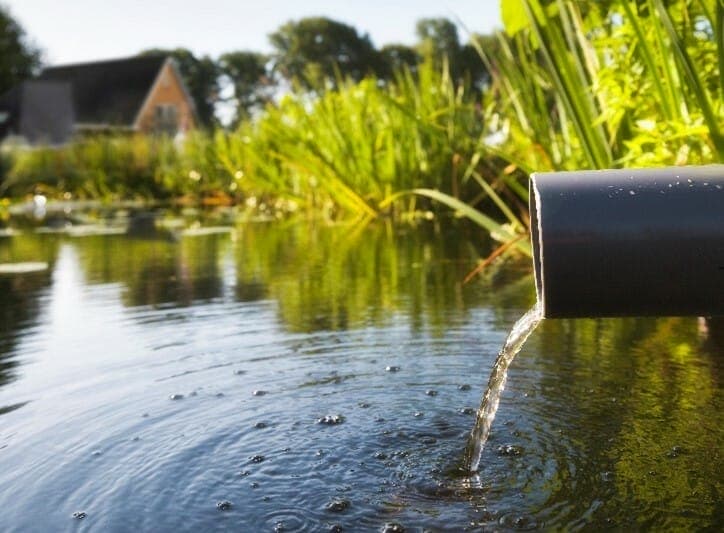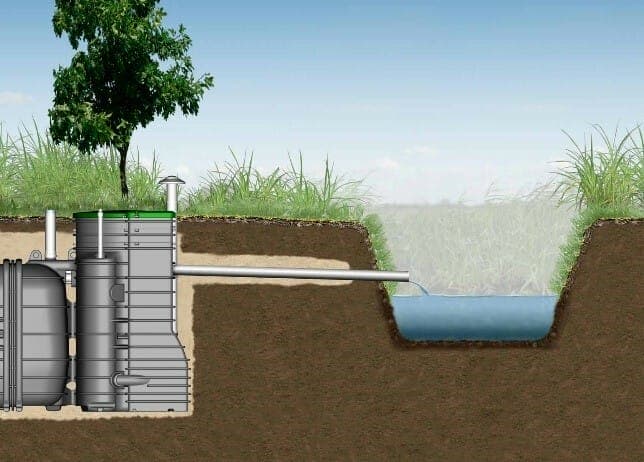Most people are not familiar with how septic tanks work and have many questions about them. The main questions are often about their maintenance but also about the fears that can be incurred following certain risks.
People have many opinions about septic tanks and septic systems, but not all of them are completely accurate.
If you're among those who think that they always smell bad, make a lot of noise, require a lot of maintenance, and are expensive to run, read on--you might be surprised about what you'll learn!
First thing you need to know to answer this question is: What kind of waste will my septic system produce?
In a septic system, the wastewater is first processed by a primary tank to remove solids, fats and oils. Solids will sink and form a layer of what we call "sludge" at the bottom of the tank, while oils will float at the top. So here we are our first two type of waste: Sludge and oils.
 The sludge and oils will need to be removed periodically. To make sure that your system performs properly and doesn't overflow, you'll need to hire a professional firm to clean out your pit and recover this sludge. Like all waste, your sludge will be recycled once it's been removed from your site. It may be used to make biogas or turned into fertilizer... This is an excellent demonstration of sustainability, right?!
The sludge and oils will need to be removed periodically. To make sure that your system performs properly and doesn't overflow, you'll need to hire a professional firm to clean out your pit and recover this sludge. Like all waste, your sludge will be recycled once it's been removed from your site. It may be used to make biogas or turned into fertilizer... This is an excellent demonstration of sustainability, right?!
The third and final type of waste that your septic system will create is effluent water. When treating domestic wastewater with secondary biological treatment, the pollutants in your domestic wastewater will be eaten by tiny bacteria over time, who will make a banquet of the remaining pollution and particles.
Once the water has been filtered, it will be safe to release into nature. Evacuated by infiltration into the soil, this treated wastewater may be utilized for underground irrigation of plants to save money on irrigation water.
Wastewater and the waste it contains produce gases that are more or less hazardous during decomposition. Methane is one of these gases, it can be extremely harmful at high levels. The concentrations of various gases in a pit vary depending on the wastewater's composition, as well as temperature, PH, and time since the previous emptying.
But rest assured, your safety is one of our top concerns! Our sewage treatment experts built our septic systems in such a manner that they are fully ventilated and emit no harmful fumes.
However, if a persistent odor emanates from your septic system, it's critical to get assistance from a specialist as soon as possible.
Don't worry, explosions are very uncommon. However, you should be aware that a septic tank must be vented for it to function correctly... That's why most wastewater regulations demand that the tank be ventilated properly.
If the tank compartments are not vented properly, gases may accumulate due to their higher density than air. If the gases build up and encounter a heat source (flames, sparks, electrical equipment, or even cigarettes), an explosion can occur.
These incidents are extremely rare, and they become even less frequent when utilizing BIOROCK systems. See, just like us, the bacteria that consume pollutants in wastewater require air to survive. If your system is inadequately vented, the bacteria will die off, resulting in a very bad smell that you will notice immediately.
Furthermore, as BIOROCK septic systems require oxygen and ventilation to function properly, our engineers have planned everything so that the installation is adequately ventilated, and this problem does not recur.
 In most cases... No. But not with BIOROCK systems, which don't need electricity to work. Our experts have developed sewage treatment plants that use a biological method to filter water and do not require any energy source to operate.
In most cases... No. But not with BIOROCK systems, which don't need electricity to work. Our experts have developed sewage treatment plants that use a biological method to filter water and do not require any energy source to operate.
Depending on where you need to install your wastewater treatment plant, you might need to evacuate the treated water by high outlet: a lifting kit with a high-quality pump will be necessary. The latter requires a supply of energy that is far lower than the energy required by other systems.
 Your septic system can freeze when the septic line is not buried deep enough in the ground, or if compacted soil covers it. To prevent this from happening, our team of experts follows a very specific protocol when installing your septic system.
Your septic system can freeze when the septic line is not buried deep enough in the ground, or if compacted soil covers it. To prevent this from happening, our team of experts follows a very specific protocol when installing your septic system.
External walls of the tanks, lids, and eventually risers might have to be insulated using the right construction material if you live in an area with extremely cold winters. There are a variety of choices:
Another tip to avoid your system from freezing is to make sure no one walks or drives over it since this can cause the snow to compact and push the frost deeper into the ground.
If your system does end up freezing, it's best to call an expert who will use professional equipment to clear frozen pipes without damaging your wastewater treatment plant.
Discover all you need to know about preparing for chilly weather and spending the winter with a light heart HERE !
 Although the bacteria in your system help in the sludge's breakdown, it may accumulate over time and need to be emptied or cleaned. Tank cleaning is typically done every three to five years by most homeowners. We advise emptying your tank every 1-3 years depending on the size of the tank, its capacity, and the usage of the home. If you're not sure if the pit is full, look for signs such as a foul odor, muddy grass due to an overflow of the pit, or even slower water flow from the toilet or sinks.
Although the bacteria in your system help in the sludge's breakdown, it may accumulate over time and need to be emptied or cleaned. Tank cleaning is typically done every three to five years by most homeowners. We advise emptying your tank every 1-3 years depending on the size of the tank, its capacity, and the usage of the home. If you're not sure if the pit is full, look for signs such as a foul odor, muddy grass due to an overflow of the pit, or even slower water flow from the toilet or sinks.
In any case, it's typically preferable to have your installation checked by a professional. We recommend that you inquire about annual maintenance agreements from your installer.
Your wastewater system was designed to prevent any fumes that could be harmful to your health from entering your home or business and is supposed to be odor-free. However, if you smell something unusual and foul (it can be like the smell of rotten eggs), then call in the professionals! This odor may contain methane or sulfur and therefore be dangerous. When you are outside, you should not have a strong sewage odor or muddy grass. These are indications that the system is not working properly, so call a septic system maintenance expert immediately.
Your septic system is an essential part of your home. We've addressed the seven most often asked questions about septic tanks to alleviate your perplexity and anxiety, and to help you stay informed about your wastewater treatment system.
However, if you need any additional information or wish for us to explain the installation and maintenance processes in more detail, don't hesitate to send us a mail at info@biorock.co.nz: one of our technical experts will be happy to answer you!